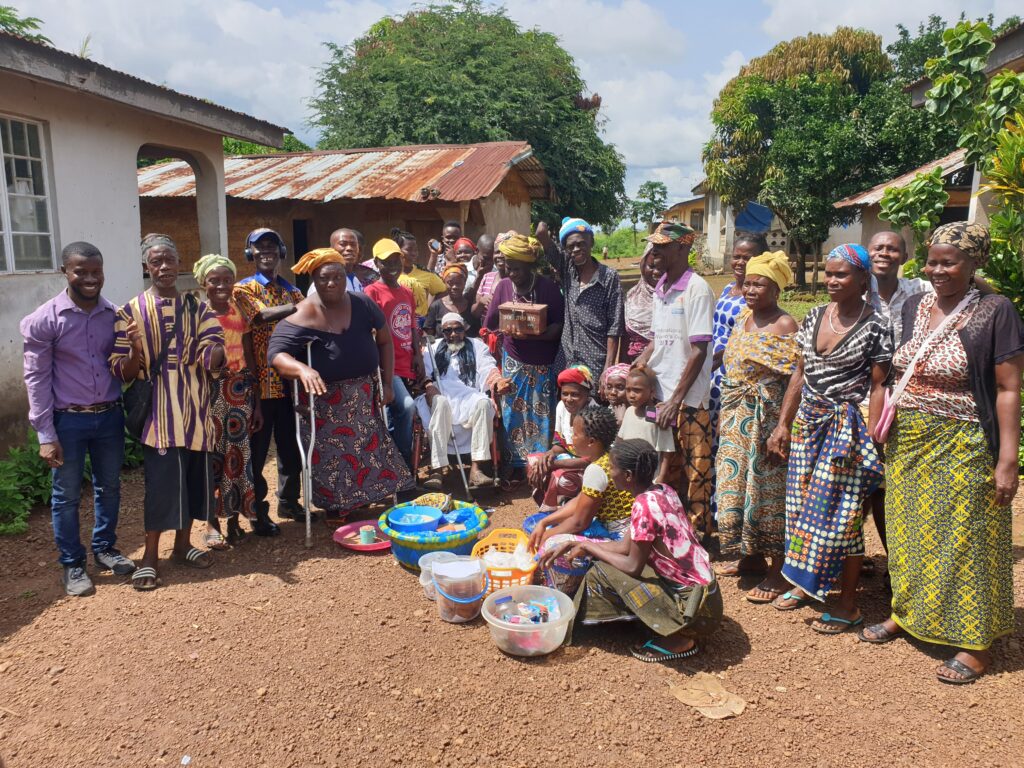In the global north, amputation is usually a result of accidents or diabetes. But in Sierra Leone, rebel soldiers used it as a weapon of terror, punishing the civilian population during the country’s civil war. It left an estimated 27,000 people (out of a population of 5.1 million) as amputees. Even twenty years later, victims face significant stigma and marginalisation, in addition to the lasting trauma related to their experiences in the war.
When the fighting ended, many surviving amputees and their families were offered housing in ‘camps’ in Port Loko district. However, despite the promises of officials and NGOs, there has been little long-term support. This legacy of broken promises understandably led to distrust of charities and authorities. Amputees were averse to appearing in photos, taking part in interviews or doing anything that might compromise their anonymity.
What Are We Doing Differently?
Our local partner, Conforti, encountered this reluctance to engage when the group first started work in the Port Loko camp. But gradually, the team’s commitment and sincerity has changed this.
When Tom Doughty, our International Programmes Manager made a trip to Sierra Leone last October (after an absence dictated by the pandemic) he said:
It was such a privilege to be welcomed into the camp to meet the self-help group (SHG) members. One member, who had his hand amputated by the rebels, spoke of ‘blame games’ directed at the amputees, with people saying that they are lazy and can’t help themselves. However, he and the other amputees are fighting this prejudice. He said that Conforti’s livelihoods support is helping them with this – with their small businesses they are challenging the notion that ‘the disabled cannot help themselves.’
Another member who is the child of amputees and who grew up in the camp, explained how the SHG savings scheme is a great help for students and young people like him too – as the amputees are often reliant on financial support from their children.

What Do We Mean By “Livelihoods”?
Most of the SHG members are engaged in small scale trading, buying and selling items such as rice, salt, peppers, biscuits and soap. Two members explained how they have banded together and pooled their livelihoods funding to launch a stall at the market in Port Loko, where they sell food.
One lady, who lost her legs to the rebels, explained how she and other members used to beg in the street. Now, her petty trading means she is no longer begging. She has her dignity and hope for the future.
While the livelihoods support is modest, it is clear from visiting the amputees that it’s transformational. Our help provides people living with mental illnesses and epilepsy with the skills and means to start to support themselves economically. It also greatly improves confidence and self-esteem.
We are proud that Conforti is one of the few organisations to have overcome barriers at the camp by building trust and delivering on their promises.
Please click on the DONATE button above to support Network for Africa’s work. Thank you.